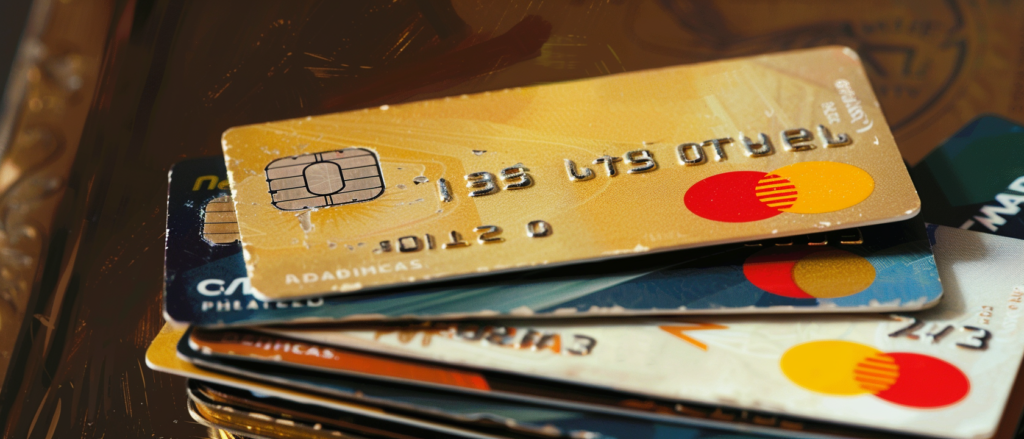-
Mastercard digital payments introduce the Crypto Credential service, aiming to streamline and secure cryptocurrency transactions within the European Union and Latin American markets.
-
The system allows users to transfer and receive cryptocurrency using simplified aliases rather than sophisticated blockchain addresses, making it easier to use.
-
Mastercard Crypto Credential checks consumer and business interactions, ensuring that users meet verification requirements and that the recipient’s wallet accepts the transferred asset.
Mastercard recently announced the launch of the Mastercard Crypto Credential on May 29, aiming to simplify and enhance the security of crypto transactions. This groundbreaking service targets the European Union (EU) and Latin American markets.
The system allows users to send and receive crypto using simplified aliases instead of complex blockchain addresses. According to a press release, Mastercard digital payments are now more accessible than ever with this innovation.
Mastercard digital payments: Crypto Credentials Launch
The Mastercard Crypto Credential system verifies interactions among consumers and businesses on blockchain networks. It ensures that users meet verification standards and confirms that the recipient’s wallet supports the transferred asset. This feature significantly enhances trust and certainty in transactions, a crucial aspect of any Mastercard digital payments solution.
Moreover, Mastercard Crypto Credential simplifies knowing which assets or chains the recipient supports, providing greater clarity and security for all transactions. The system also supports exchanging Travel Rule information for cross-border transactions, a regulatory requirement to prevent illegal crypto-related activities in the EU.
Secure P2P Transactions
One of the critical features of Mastercard Crypto Credential is its ability to facilitate secure P2P crypto transactions. The system first verifies users according to Mastercard’s stringent standards.
After passing verification, users receive an alias for sending and receiving funds across supported exchanges. When initiating a transfer, the system checks the recipient’s alias and wallet compatibility validity, ensuring secure crypto transfers.
If the wallet does not support the asset or blockchain, the sender receives a notification, and the transaction is halted to prevent any loss of funds. This feature is particularly beneficial for users looking to engage in P2P crypto transactions, as it minimizes the risk of errors and enhances the overall security of the process.
While the initial rollout focuses on peer-to-peer transactions, Mastercard plans to extend the service to include non-fungible tokens (NFTs), ticketing, and other crypto payment solutions. This expansion will further broaden the scope and utility of secure crypto transfers, making it easier for users to conduct various transactions.
EU and Latin American Markets
Mastercard Crypto Credential is specifically designed for the Latin American and European markets. The service is available to users in numerous countries, including Argentina, Brazil, Chile, France, Guatemala, Mexico, Panama, Paraguay, Peru, Portugal, Spain, Switzerland, and Uruguay. By targeting these regions, Mastercard aims to make crypto in the EU and Latin America more accessible and secure.
The service is initially available on three leading exchanges: Bit2Me, Lirium, and Mercado Bitcoin. Users of Lulibit, a Panama and Guatemala-based exchange, can also access the service via Lirium.
Additionally, Brazil-based crypto wallet provider Foxbit is participating in the pilot ecosystem. These partnerships ensure that the service reaches a broad audience, enhancing the adoption of Mastercard digital payments across multiple platforms.
Mastercard intends to offer crypto credentials to select users on a first-come, first-served basis. Following this initial phase, the service will be extended to over 7 million users in the coming months. This phased approach allows Mastercard to refine the system based on user feedback, ensuring a robust and reliable service.

Mastercard’s Other Efforts
Mastercard has been involved in various other blockchain projects to improve the crypto ecosystem. One such initiative is the Multi-Token Network, which focuses on enhancing crypto transactions’ security, scalability, and interoperability. This project complements the efforts behind Mastercard digital payments, providing a holistic approach to blockchain technology.
Additionally, Mastercard’s Crypto Source service, which uses Paxos as its power source, enables banks to provide customers with cryptocurrency trading, further integrating crypto payment solutions into traditional financial services.
ALSO, READ; Mastercard integrates a stablecoin digital wallet to operate in Asia-Pacific region.
The company has also developed technology to tokenize central bank digital currencies (CBDCs) on various blockchains, expanding the reach and functionality of digital currencies.
Moreover, Mastercard powers several payment cards issued by crypto companies, including cards from Nexo, Bybit, Uphold, Bitpay, and Revolut. These partnerships enable seamless integration of crypto payment solutions into everyday transactions, making it easier for users to adopt and utilize digital currencies.
Future Prospects
The launch of Mastercard Crypto Credential marks a significant advancement in the company’s pursuit to bridge traditional financial services with the growing crypto ecosystem. Mastercard has ambitious plans to expand its digital payment solutions further and deepen its integration with blockchain technology.
Mastercard aims to facilitate a seamless and secure crypto transaction experience for consumers and businesses worldwide by leveraging its robust infrastructure and extensive network.
One of the prospects includes exploring interoperability with other blockchain networks beyond the currently supported ones. This could open up new avenues for transactions and increase the utility of the Mastercard Crypto Credential system.
Additionally, Mastercard invests in research and development to keep pace with emerging crypto trends and regulatory changes, ensuring its services remain cutting-edge and compliant.
In summary, Mastercard’s launch of the Crypto Credential system marks a significant step towards simplifying and securing crypto transactions. By targeting the EU and Latin American markets, the company aims to enhance the accessibility and reliability of crypto in these regions.
With ongoing efforts in blockchain technology and partnerships with key players in the crypto space, Mastercard continues to lead the way in digital payments innovation.
